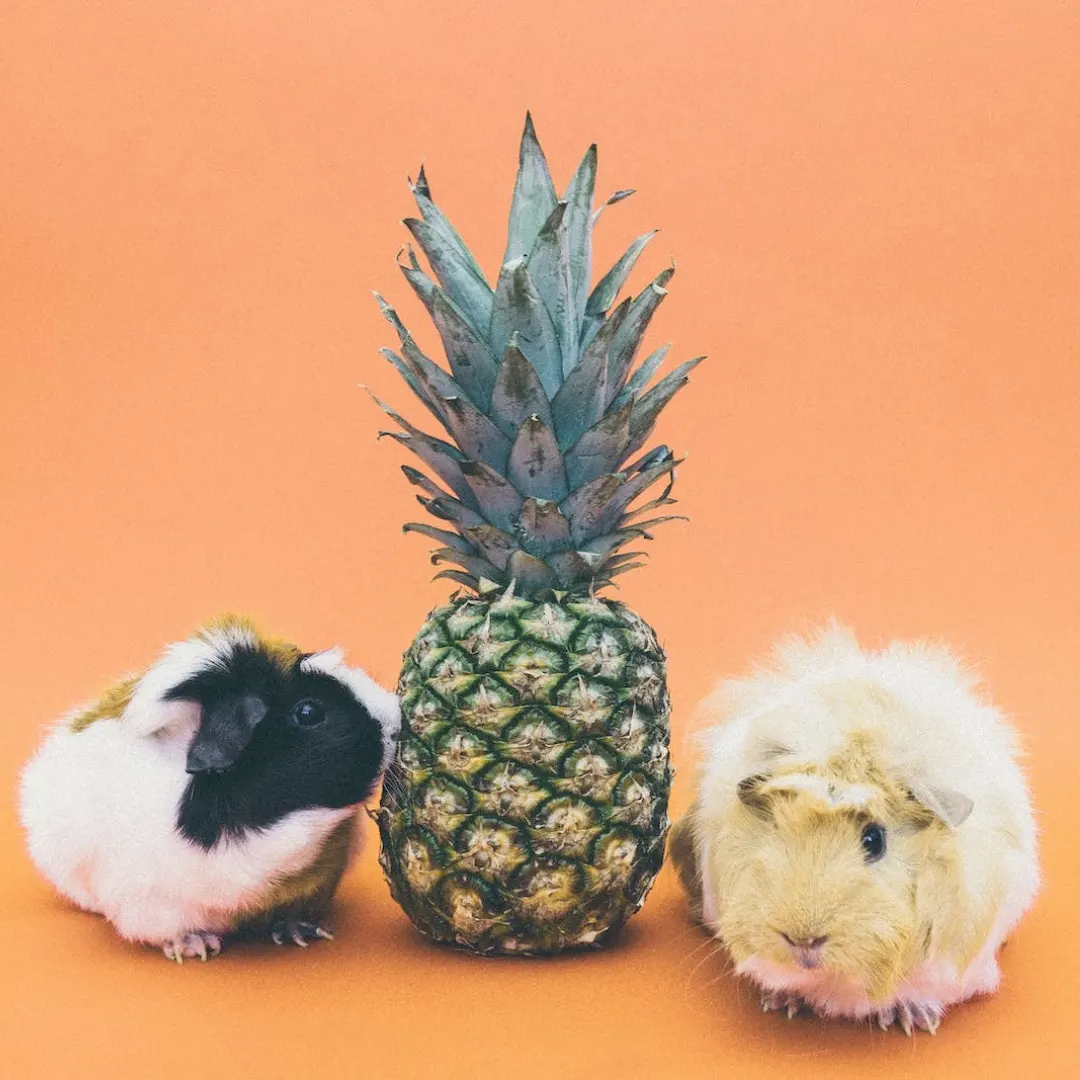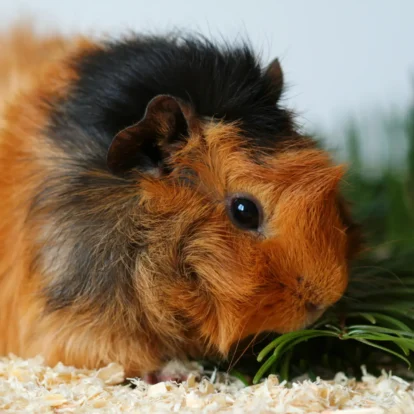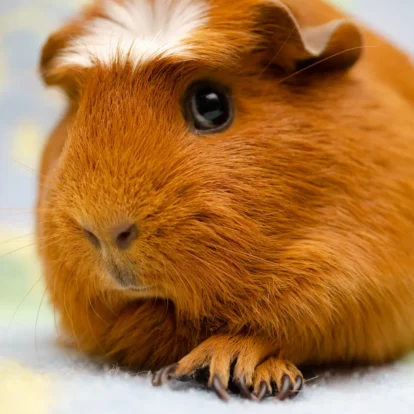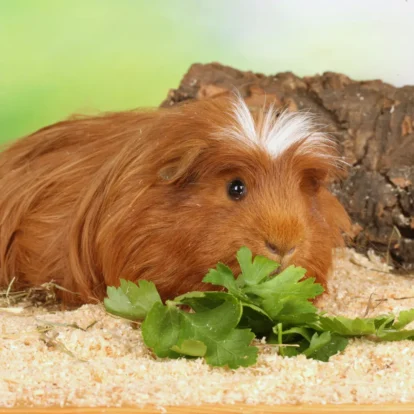Table of Contents
Introduction: Do Guinea Pigs Smell?
How many of you, my fellow guinea pig parents, have been asked this question, “Do guinea pigs smell?” Admittedly, it’s a common concern among most guinea pig owners and those considering adding a new fuzzy member to their home. More often than not, this question stems from a fear of the house transforming into a smell factory, with a strong odour wafting from the guinea pig cage.
Let’s address this straight away: yes, like most pets, guinea pigs can give off an odor. But is it any different from other animals we share our homes with? And is it something to be overly concerned about? I’m here to demystify this pressing issue. You see, I’ve been a guinea pig parent for several years now, and I can comfortably tell you that while guinea pigs can contribute to certain smells, it’s far from the nightmare scenario that some might have you believe.
The relevance of this issue isn’t just about maintaining a pleasant-smelling home, although that’s certainly important. It’s also about understanding our small animals’ health and dietary needs. For instance, did you know that a significant part of a guinea pig’s smell can be influenced by their diet, especially their intake of vitamin C? Or that a clean guinea pig cage can significantly reduce any unpleasant odour?
So, buckle up as we embark on a journey to bust the stink myth and set the record straight. We’ll explore the true nature of guinea pig odors, delve deep into the role of a guinea pig’s diet, and offer practical advice on managing your guinea pig cage smell. By the end, we’ll get a better understanding of our guinea pigs and create a fresh, enjoyable habitat for these adorable furballs.
Let’s turn our guinea pig cages and habitats into the cozy, fragrant havens they deserve to be ☀️!
The Nose Knows: Understanding Natural Guinea Pig Scents
Exploring the Biology: Why Guinea Pigs Have Their Distinct Odors
First things first, let’s talk about why guinea pigs have their own distinct smell. As some of you may already know, guinea pigs groom themselves regularly. Yes, that’s right! These adorable piggies are actually quite clean critters 🐹. Most guinea pigs spend a good chunk of their waking hours grooming their fur and keeping themselves clean. However, like any animal, they do have their own natural scent.
In particular, male guinea pigs tend to have a more pungent smell than their female counterparts. This is because male guinea pigs, or boars, have a scent gland near their rear end, which they use to mark their territory. This gland can produce a musky aroma that, while not exactly unpleasant, is certainly noticeable. Female guinea pigs, or sows, also have their scent, but it’s usually subtler and less noticeable to the human nose.
Debunking Myths: Clarifying Common Misconceptions About Guinea Pig Smells
Now, onto debunking some common myths about guinea pig smells. The first misconception that many people have is that bad smells automatically mean there’s something wrong. While it’s true that a sudden change in your guinea pig’s smell could indicate health issues, it’s also true that normal guinea pig activities such as eating, pooping, and peeing can cause smells too. For instance, leftover food or guinea pig pee in the cage can create an unpleasant smell if not cleaned up promptly.
Another common myth is that multiple guinea pigs mean double the stink. In my experience, this isn’t the case. Consistent cage cleaning and grooming can keep the smell under control, even with multiple pigs in the house. The litter box should be changed regularly, and a deep clean of the cage should be done weekly to keep the odors at bay.
Remember, it’s important to use non-toxic cleaning products for your pigs. The goal is not to completely eliminate the smell but to manage it and keep it to a level that’s comfortable for both you and your piggies 🌈 🐹. Understanding and managing these elements allows us to cohabitate peacefully with our furry friends without sacrificing a fresh-smelling home.
Fragrance-Friendly Habits: Tips for a Sweet-Smelling Guinea Pig Home
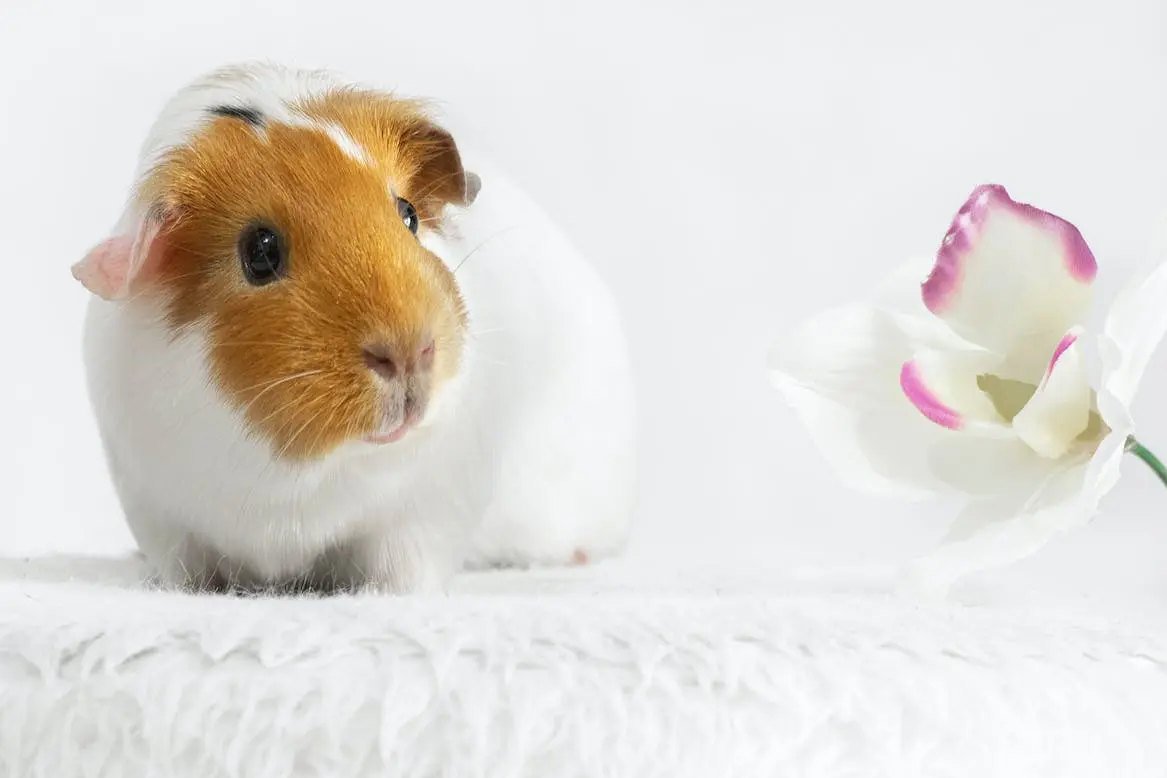
Cage Setup: Optimizing the Living Space for Cleanliness and Freshness
As a proud guinea pig parent, I’ve learned that these are spotless animals who appreciate a well-set cage. When setting up a guinea pig cage, it’s essential to consider the comfort and cleanliness aspects.
A spacious cage gives the piggies ample room to play, reducing the chances of the cage becoming a dirty mess. Remember that more space often translates to less odor. Since guinea pigs are social animals, they need room to play, explore, and carry out their scent marking without making their habitat too stinky. My personal mantra? “More space, less stink!” 😁🐹
An often-overlooked trick is to potty train your guinea pigs. Yes, you read it right! While they may not be as quick learners as rabbits, with a bit of patience, you can train them to use a specific corner for their poop, making spot cleaning a breeze!
Bedding Choices: Options That Reduce Odors and Enhance Comfort
Choosing the right bedding for your guinea pig’s cage can be a game-changer when it comes to battling bad smells.
There are multiple options available, each with its unique benefits. First up, let’s talk about fleece bedding. This is a personal favorite of mine for several reasons. Primarily, fleece bedding doesn’t produce dust, and it’s super easy to clean. However, fleece requires frequent washing as it can quickly become a harbinger of those unpleasant odours we’re looking to avoid. Wet bedding, especially when it gets soiled, can intensify these smells, so be sure to change it out regularly.
Next up is paper-based bedding. This type of bedding is highly absorbent, which is excellent for preventing those soggy bedding situations that can lead to a stink. But, similar to fleece, it must be changed frequently to ensure your cage stays fresh and your guinea pig’s fur stays clean.
Then there’s the bedding option that doubles as a snack – Timothy Hay! Guinea pigs love to munch on fresh hay, which can be a comfortable bedding option. While this is an affordable and easy-to-find option, it does come with a catch. Hay can get messy pretty quickly and doesn’t absorb as well as other options. This can lead to soiled bedding that needs daily replacement to avoid a buildup of bad smells.
Overall, the trick is finding a balance that works for you and your furry pals. My best bedding preference? I lean towards a combination of fleece bedding with frequent changes and spot cleaning supplemented with fresh hay. This arrangement keeps the cage clean, odours at bay, and my guinea pigs happy! Remember, regular cage cleaning is the secret sauce to keeping your guinea pig’s environment pleasant and welcoming.
Cleaning Routines: Establishing a Hassle-Free Cleaning Schedule for a Consistently Fresh Environment
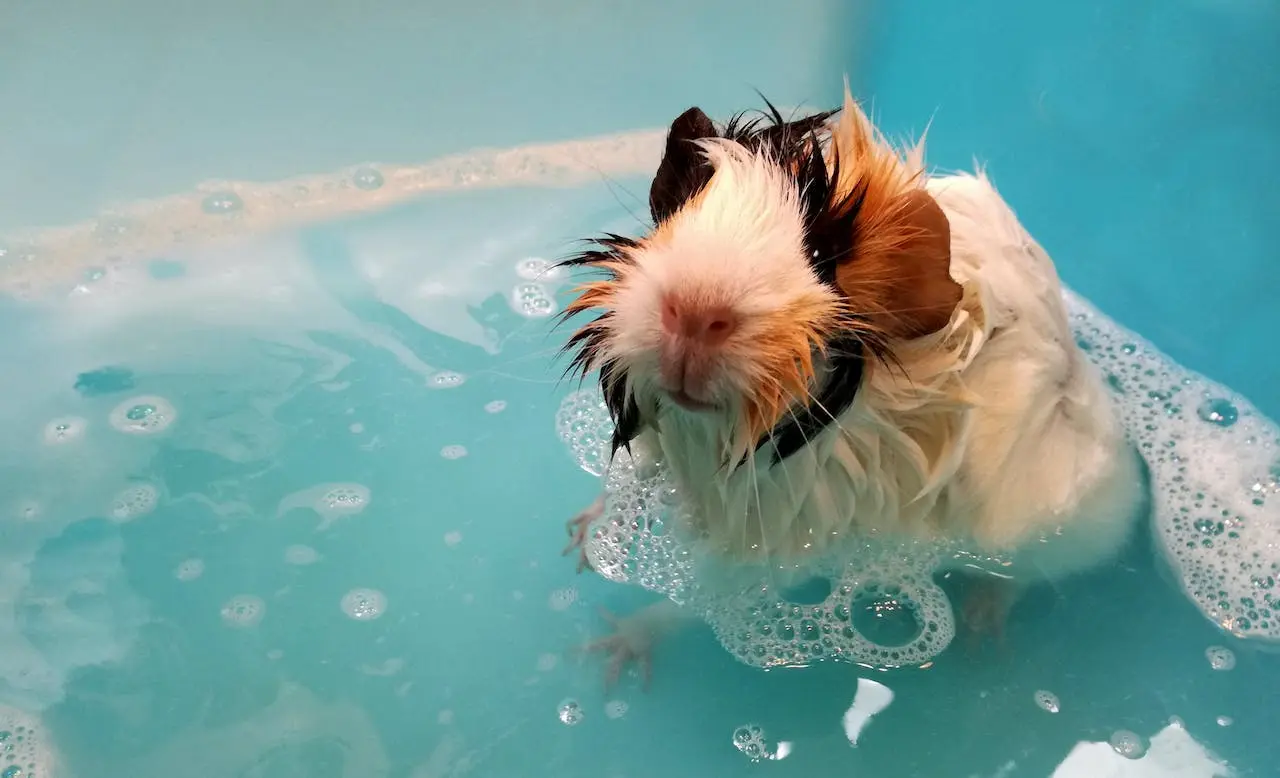
A clean cage is a non-negotiable for our fur babies. But that doesn’t mean you need to deep clean the whole cage every single day. I’ve found spot cleaning daily and doing a full cage clean once a week works best for keeping unpleasant smells at bay.
And my secret weapon? The humble spray bottle! Fill it with a mix of water and a safe pet disinfectant for a quick and easy clean. Air purifiers and clean water bottles can go a long way, too, but nothing beats the smell of a freshly cleaned cage!
And remember, bathing guinea pigs should be done only when necessary, as it can strip their skin of necessary oils. With a little consistency, you’ll have a clean, fresh-smelling guinea pigs’ paradise in no time! ⏱️
Herbal Remedies: Exploring Safe and Pleasant-Smelling Herbs to Enhance the Habitat
I’ve noticed several times that some guinea pigs can smell bad, especially around the grease gland area. Giving them a mild soap bath focusing on that area does help, but I’ve discovered something even better – herbal remedies. Using safe and aromatic herbs like lavender, mint, and chamomile can indeed be a game-changer in enhancing their habitat! I often place these herbs in a water bottle and spray them around the cage, which helps to create a refreshing aroma. Plus, these herbs have calming effects on our piggies, making them a perfect addition to their environment. 🌿
Not only do these herbs add a pleasant scent to the cage, but they also have natural healing properties that can benefit our guinea pigs’ health. For example, lavender has anti-inflammatory and antibacterial properties that can help with skin irritations or infections. Mint can aid digestion and relieve stress, while chamomile has soothing effects on the nervous system and promotes relaxation.
Conclusion: Do Guinea Pigs Smell?
So, do guinea pigs stink? To wrap it all up, the “bad smell” we often associate with our lovely guinea pigs is mainly due to external factors rather than a problem with them. A dirty cage, poor diet, or lack of grooming can all contribute to the funky aromas you might be experiencing.
From my experience, male guinea pigs can develop smells around the anal sack or have issues like a urinary tract infection, all of which can indeed stink up the whole house. But with a bit of warm water, gentle cleaning, and a watchful eye, these issues can be addressed before they become more significant problems.
And remember, even in a large cage size, the “good stuff,” like timothy hay that your piggies love to eat, can get messy and start to smell. So, a regular clean-up is essential! 🧽 🫧
No one said owning guinea pigs would be easy. Still, with some care, patience, and a whole lot of love ❤️, it’s entirely possible to have a home that smells fresh and welcoming, even with two guinea pigs 🐹🐹.
And trust me, the joy of hearing those happy wheeks as your guinea pigs scamper around their clean habitat, munching on their favorite veggies, is worth all the effort you’ll put into maintaining a clean space. After all, a clean habitat is essential for eliminating bad smells and contributes significantly to our furry pals’ overall health and well-being.
So let’s bust the stink myth, freshen things up, and create a piggy paradise 🌈🦄🐹 where guinea pigs poop 💩 doesn’t ruin your day. Now, go on and enjoy the sweet (smelling) life with your adorable companions!
Related Questions
Help, My Guinea Pig’s Cage Smells Terrible! What Am I Doing Wrong?
Hey there, don’t stress! It’s pretty common for a guinea pigs cage to get a bit smelly if it’s not cleaned out regularly. A super easy fix is to ensure you’re scooping out soiled bedding daily and giving the whole cage a thorough clean every week. Another top tip? Make sure to provide water bottles and food dishes with a good cleaning, too!
I’ve Heard Guinea Pigs Smell More Than Other Pets. Is This True?
The truth is, guinea pigs themselves don’t smell more than other pets. It’s usually their habitat that can get funky if not kept clean. A good diet, regular grooming, and a clean cage will keep your guinea pig and your home smelling fresh.
Can Certain Foods Make My Guinea Pig Smell Worse?
You bet! Just like us, what a guinea pig eats can affect how they smell. Foods like cabbage and broccoli can make urine and poop smell stronger. Stick to a diet of high-quality guinea pig pellets, fresh hay, and various vegetables to help keep the stink away!
Is It OK to Have A Guinea Pig In My Room?

Absolutely! Having a guinea pig in your room can be a wonderful experience, provided that you maintain good hygiene standards and ensure a quiet, stress-free environment for your little friend. It’s important to clean the cage daily and thoroughly clean it weekly to ward off any unpleasant odors.
Also, keep in mind that guinea pigs are sensitive to loud noises and extreme temperatures, so your room should be held at a comfortable temperature and noise to a minimum.
Enjoy your bond with your roomie guinea pig, and remember, a well-cared-for guinea pig is a happy, low-odor guinea pig!

